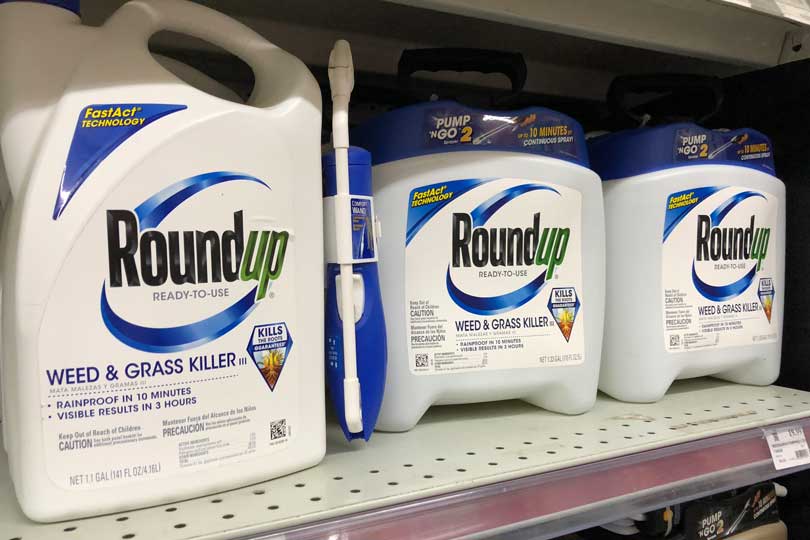By Jessica Domel
Multimedia Reporter
Bayer AG will likely get the chance to defend popular weedkiller glyphosate in court.
On Wednesday, Oct. 10, Judge Suzanne Bolanos issued a tentative ruling granting Bayer’s request, on behalf of its asset Monsanto, a new trial on the $250 million in punitive damages awarded to a school groundskeeper who alleges glyphosate use caused his non-Hodgkin’s Lymphoma.
The original lawsuit named Monsanto Company as a defendant of its products Roundup and Ranger Pro.
Monsanto has since been purchased by Bayer AG.
The judge ruled the plaintiff failed to meet his burden of producing clear and convincing evidence of malice or oppression by Monsanto.
That evidence is required for a jury to award punitive damages.
“Both plaintiff’s and defendant’s experts testified that glyphosate has developed one of the largest bodies of scientific data of any substance in the world,” Bolanos wrote. “Apart from the IARC (International Agency for Research on Cancer) evaluation, all of the worldwide regulators continue to find that glyphosate-based herbicides are safe and not carcinogenic, including U.S. EPA (Environmental Protection Agency), EFSA (European Food Safety Administration), ECHA (European Chemicals Agency), Australia, New Zealand and the German BfR (German Federal Institute for Risk Assessment).”
The plaintiff did not present any evidence Monsanto employees believed at any time exposure to glyphosate products cause non-Hodgkin’s Lymphoma nor did they present evidence the company acted despicably, according to the judge’s ruling.
“Even if the court were to deny defendant’s motion for JNOV (judgement notwithstanding the verdict) with regard to the punitive damages award, the court would grant a new trial on the grounds of insufficiency of the evidence to justify the award for punitive damages,” Bolano wrote.
Bayer asked the court to grant a new trial or to dismiss the award in the case after it was awarded in August.
The case was the first of several thousand alleging popular weedkiller glyphosate causes cancer.
In addition to the $250 million in punitive damages, the jury awarded plaintiff Dewayne Johnson $39 million in compensatory damages in August.
The jury deliberated for three days before delivering its decision.
Johnson alleges he applied Roundup and RangerPro around 30 times a year for the school system he worked for in Benicia, California. His attorneys argue exposure to the glyphosate in the herbicides led to his non-Hodgkin’s Lymphoma.
Glyphosate was registered by the U.S. Environmental Protection Agency (EPA) in 1974. It is one of the most widely-used agricultural pesticides in the world.
There are more than 700 products with glyphosate that are used for agricultural purposes and in commercial and home use.
Glyphosate works by preventing plants from creating an enzyme needed for growth that is only found in plants and bacteria.

